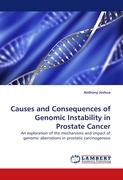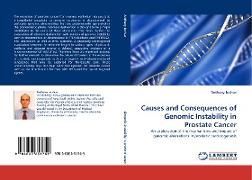- Start
- Causes and Consequences of Genomic Instability in Prostate Cancer
Causes and Consequences of Genomic Instability in Prostate Cancer
Angebote / Angebote:
The evolution of prostate cancer from normal epithelium via prostatic intraepithelial neoplasia to invasive carcinoma is characterised by particular genomic abnormalities that are predominantly generated in the preneoplastic phase. Telomere dysfunction is thought to be a major contributor to the cause of these alterations. This thesis clarifies the association of telomere dysfunction with markers of genomic instability such as abnormalities of chromosome 8, PTEN deletions and TMPRSSS2-ERG aberrations as well as HPIN outcome. A previously unrecognised association between the telomere length in various types of prostatic epithelia and adjacent stroma is defined, suggesting evidence of a micro-environmental field effect. Therefore there are important avenues for further research to determine the nature of barriers to the evolution of prostatic carcinogenesis such as oncogene- and telomere-induced senescence that may be exploited for therapeutic gain. These understandings may also help tailor management for prostate cancer such as risk stratification for men with HPIN and the use of targeted agents.
Folgt in ca. 10 Arbeitstagen

